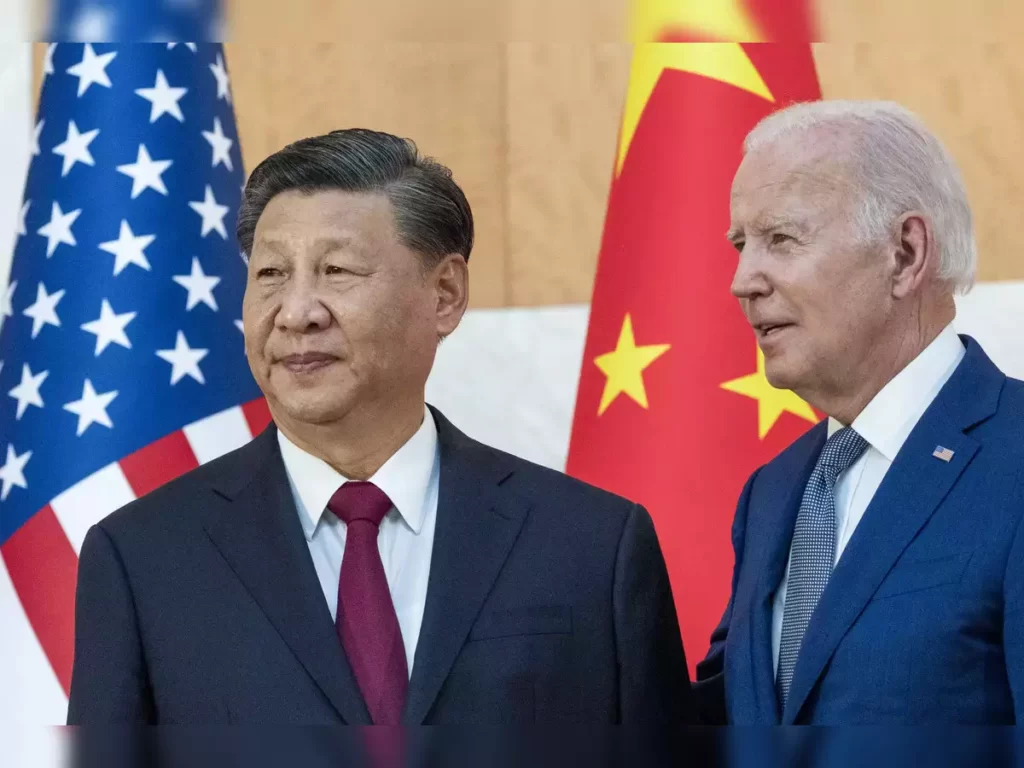
The US and China agree to restore military communications following their conference
Conference, President Joe Biden said that in an effort to reduce escalating tensions, the US and China have decided to restart military-to-military conversations. We’re returning to open, honest, and straightforward communication,” he said on Wednesday after an uncommon encounter with Chinese President Xi Jinping in California. The conversation marked the first time the two had talked face-to-face in almost a year. However, there remained indications of conflict between the two; Mr. Biden reiterated his belief that Mr. Xi is a despot.
Although the comments were later blasted by China’s foreign ministry, it doesn’t seem like they dimmed the light on what both parties are characterising as a generally positive encounter. Additionally, Mr. Biden stated that the two leaders had decided to have direct communication with one another. Speaking at a press conference after the summit, which was held at a historic country house close to San Francisco, Mr. Biden stated that both presidents could now “pick up the phone and be directly heard immediately” and that a lack of contact was “how accidents happen” conference.
Following the visit to Taiwan last year by US House Speaker Nancy Pelosi, China cut down military-to-military contacts. Taiwan, although is self-governing, is considered Chinese territory, and Beijing has vowed to use force to conquer it if needed. Even if there were still a lot of differences between the two, Mr. Biden claimed that Mr. Xi had “just been straight”. His statement said, “Some of the most constructive and productive discussions we’ve had” during the negotiations. Later, over a luncheon with US business executives, Mr. Xi expressed candidly his desire to work towards improving ties with the US conference.
He said that he and President Biden decided to keep up their diplomatic and cooperative efforts. The door between China and the US cannot be shut once more, he declared. “We need to build more bridges and pave more roads between each other.” However, Mr. Biden said he thought Mr. Xi was a tyrant in response to a reporter’s query as he was leaving the platform, indicating how tense things still are between them conference.
“He’s a dictator in the sense that he is a guy who runs a country… based on a form of government that is totally different from ours,” he stated. Chinese authorities responded violently and denounced Mr. Biden’s June remarks as “extremely absurd and irresponsible” when he made a similar statement. China’s foreign ministry called Mr. Biden’s comment “irresponsible political manipulation” and “extremely wrong” on Thursday. Despite the fact that the two leaders’ meeting was generally viewed as favourable, there was one unpleasant note conference.
In the report of the meeting provided by state news agency Xinhua, the term “dictator” was conspicuously omitted. The readout, which occasionally serves as a barometer of how well or poorly the Chinese leadership views relations, mentioned significant advancements in bilateral relationships. The two sides announced many additional agreements in locations that have recently been points of contention in addition to starting military communications again. Among these were actions to stop the fentanyl supply entering the US, which has led to an increase in overdose deaths there.
Chinese manufacturing businesses supply precursor chemicals that can be used to manufacture synthetic opioids, in addition to the opioid itself. “We’re taking action to significantly reduce the flow of precursor chemicals and pill presses from China to the Western Hemisphere,” stated Vice President Biden. China will specifically target businesses that produce such precursor chemicals as per the agreement. “It will prevent deaths,” Mr. Biden stated to the press.
The two leaders also spoke about the situation in Gaza and Israel. Reporters were informed by a senior US source that Mr. Biden had requested China to use its clout with Iran to persuade it to refrain from taking actions that may be interpreted as confrontational. The two countries also decided to work together to study artificial intelligence (AI) and spoke extensively about Taiwan, which Mr. Xi described as “the biggest, most dangerous issue in US-China ties” in an interview with a US official.
China announced after the discussions that the two forces were able to communicate again “on the basis of equality and respect.” Despite the great anticipation for the meeting held in conjunction with the Asia-Pacific Economic Co-operation (Apec) summit, representatives from both parties downplayed the likelihood of significant progress being made. According to a senior US administration official, the main objectives here are basically about controlling competition, avoiding the worst effects of risk, such as conflict, and making sure that lines of communication remain open.
When a suspected Chinese surveillance balloon was shot down above US territory in February, relations worsened. The highest-ranking Washington official to visit Beijing in over five years was US Secretary of State Antony Blinken, who paid the Chinese capital a visit in June. He first met Foreign Minister Qin Gang, and later President Xi. Even though there were still significant problems between the two nations, Mr. Blinken expressed his expectation that there would be “better communications [and] better engagement going forward” as he concluded his tour.
